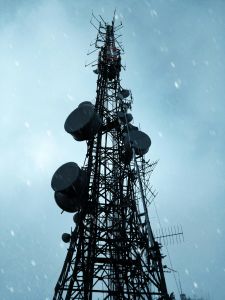In our increasingly connected world, satellites play a crucial role in everything from GPS navigation to weather forecasting and communication. A sudden halt in satellite functionality would have wide-ranging implications, but it's not entirely inconceivable. Whether due to technical failures, natural events, or cyberattacks, understanding how to navigate a world without satellites is essential. Here’s a practical guide on how to adapt and survive if satellites stop working.
1. Stay Informed
Get the Facts: If satellites stop working, it’s likely to be a significant event covered extensively by news outlets. Use a battery-powered or hand-crank radio to stay updated on the situation. If possible, tune in to local AM or FM stations that can provide real-time information and instructions.
Understand the Impact: Determine which services are affected. For instance, GPS disruptions would impact navigation, while a loss of weather satellites would make weather forecasting less reliable. Knowing which systems are down can help you adapt your strategy.
2. Navigate Without GPS
Use Traditional Maps and Compass: If you rely on GPS for navigation, it’s time to go old-school. Keep a detailed road map of your area and a reliable compass. Learn how to read maps and use a compass for directions.
Plan Ahead: Before you travel, plan your routes in advance using paper maps. Mark key locations and alternative routes to avoid getting lost.
3. Prepare for Communication Disruptions
Establish Communication Plans: Without satellite communication, cell phones may not function. Set up a plan with family and friends for alternative ways to stay in touch, such as meeting at designated locations or using landline phones.
Use Ham Radios: Amateur (ham) radios can be a valuable tool for communication. Obtain a ham radio license and learn how to operate one. They can be used to communicate over long distances without relying on satellites.
4. Handle Weather Challenges
Monitor Local Weather: Without satellite-based weather forecasts, rely on local meteorological stations and weather radios. Many local stations continue to operate independently of satellites.
Prepare for Severe Weather: Keep emergency weather supplies on hand, such as flashlights, batteries, and a first aid kit. Stay informed through local alerts and be ready to act quickly in the event of severe weather.
5. Manage Financial Transactions
Carry Cash: In the absence of satellite-based systems like electronic banking, cash transactions become crucial. Keep a reasonable amount of cash on hand for daily expenses.
Keep Records: Maintain records of your financial transactions and essential documents in physical form. This will help you manage your finances even if electronic systems are disrupted.
6. Stay Safe and Secure
Prepare for Emergencies: Without satellite-based systems, emergency services might experience delays. Ensure your emergency kit includes essentials like food, water, medications, and first aid supplies.
Secure Your Property: Loss of satellite surveillance could lead to increased security risks. Strengthen physical security measures at your home, such as locks and alarms, and establish neighborhood watch programs if feasible.
7. Adapt to Disrupted Services
Find Alternatives: Many services rely on satellites, from navigation to streaming. Look for alternative methods:
- For navigation: Use paper maps and compass.
- For entertainment: Reconnect with offline activities like reading, board games, or outdoor hobbies.
- For information: Turn to books, newspapers, and community resources.
Stay Flexible: Be prepared for disruptions in services and adapt your routines accordingly. Flexibility and resourcefulness will be your best assets in a satellite-free world.
8. Reconnect with the Physical World
Rediscover Offline Skills: Without the convenience of satellite technology, embrace offline skills such as gardening, cooking from scratch, or DIY repairs. These skills can enhance your self-sufficiency and resilience.
Engage Locally: Reconnect with your local community. Attend local events, support local businesses, and participate in community efforts to strengthen local bonds.
A world without satellites would undoubtedly pose significant challenges, but with preparation and adaptability, you can navigate the situation effectively. By staying informed, using traditional tools, and preparing for disruptions, you can maintain your safety and well-being in a satellite-free environment. This situation, while difficult, could also offer an opportunity to rediscover and embrace the skills and connections that don’t rely on technology.


